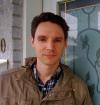Question about a passage in the book "Art of living" - Discussion
Question about a passage in the book "Art of living"
Niclas, modified 4 Years ago at 10/12/19 2:40 AM
Created 4 Years ago at 10/11/19 2:58 PM
Question about a passage in the book "Art of living"
Posts: 5 Join Date: 10/11/19 Recent Posts
Greetings everyone.
I have recently read the book "The Art of Living: Vipassana Meditation" and I have a hard time understanding the following passage:
https://imgur.com/a/hMX9vbW
It is found on page 45. I don't understand what they mean about the consciousness is arising and assumes a specific mental and physical form.
Thanks for reading this.
I have recently read the book "The Art of Living: Vipassana Meditation" and I have a hard time understanding the following passage:
https://imgur.com/a/hMX9vbW
It is found on page 45. I don't understand what they mean about the consciousness is arising and assumes a specific mental and physical form.
Thanks for reading this.

Ben V, modified 4 Years ago at 10/12/19 7:09 AM
Created 4 Years ago at 10/12/19 7:09 AM
RE: Question about a passage in the book "Art of living"
Posts: 417 Join Date: 3/3/15 Recent Posts
I could be wrong, but the way I understand this is that everytime consciousness arises, it will identify with a certain mental and physical form. For example, in one moment one may identify as a male (physical form) Buddhist (a mental form). At other moments of consciousness one may identify as a healthy or sickly, good looking or ugly, tall or short, etc (all physical forms) person. Or one may identify as a nice person, an unkind person, a lustful person, a hateful person, a saintly person, etc,...all mental forms.
As for the Sankhara section of this passage, Goenka equals Sankhara with reaction. When it is in the context of dependent origination, I tend to view the meaning of sankharas as the subtle mind movements (that can be perceived only in equanimity nana) that are activators of consciousness. The pre-thoughts, so to speak. Small mind-movements that, if followed, will turn into the dualistic consciousness Goenka talks about.
As for the Sankhara section of this passage, Goenka equals Sankhara with reaction. When it is in the context of dependent origination, I tend to view the meaning of sankharas as the subtle mind movements (that can be perceived only in equanimity nana) that are activators of consciousness. The pre-thoughts, so to speak. Small mind-movements that, if followed, will turn into the dualistic consciousness Goenka talks about.

Chris M, modified 4 Years ago at 10/12/19 8:37 AM
Created 4 Years ago at 10/12/19 8:37 AM
RE: Question about a passage in the book "Art of living"
Posts: 5145 Join Date: 1/26/13 Recent Posts
Niclas --
We can't experience anything without the mediation of mind - consciousness. Consciousness, while mysterious and not knowable in and of itself, is the product of the interaction between whatever is "out there" and our senses - the creation of stories, reactions, images, and other things (objects) that then appear to us as... experience. In a way, this is simple but it's also very deep and hard to grok. Grokking how this all works is why we practice. It's not immediately obvious. We've lived with the process for many years and haven't ever really questioned it, how experience really plays out, what the implications of how it works really are.
At some point, we realize that consciousness arises as the very things (objects) that we experience. There is no consciousness without the perception of objects: those things that are created by mind to represent what our senses bring to mind. Those things are consciousness. It's all happening very, very fast and very seamlessly, but it's happening all the time. It can't be interrupted or stopped except under special circumstances (which is another topic for another time).
I'm putting this into different words that may or may not help, but we all struggle with this when we start a meditation practice, especially using vipassana because the point of vipassana is to see this and try to "get it" it in a very deeply felt way.
We can't experience anything without the mediation of mind - consciousness. Consciousness, while mysterious and not knowable in and of itself, is the product of the interaction between whatever is "out there" and our senses - the creation of stories, reactions, images, and other things (objects) that then appear to us as... experience. In a way, this is simple but it's also very deep and hard to grok. Grokking how this all works is why we practice. It's not immediately obvious. We've lived with the process for many years and haven't ever really questioned it, how experience really plays out, what the implications of how it works really are.
At some point, we realize that consciousness arises as the very things (objects) that we experience. There is no consciousness without the perception of objects: those things that are created by mind to represent what our senses bring to mind. Those things are consciousness. It's all happening very, very fast and very seamlessly, but it's happening all the time. It can't be interrupted or stopped except under special circumstances (which is another topic for another time).
I'm putting this into different words that may or may not help, but we all struggle with this when we start a meditation practice, especially using vipassana because the point of vipassana is to see this and try to "get it" it in a very deeply felt way.

Chris M, modified 4 Years ago at 10/12/19 9:01 AM
Created 4 Years ago at 10/12/19 9:01 AM
RE: Question about a passage in the book "Art of living"
Posts: 5145 Join Date: 1/26/13 Recent PostsI could be wrong, but the way I understand this is that everytime consciousness arises, it will identify with a certain mental and physical form.
Ben, this is very close. Now, what if consciousness IS the mental and physical form?

Jim Smith, modified 4 Years ago at 10/12/19 8:07 PM
Created 4 Years ago at 10/12/19 7:44 PM
RE: Question about a passage in the book "Art of living"
Posts: 1659 Join Date: 1/17/15 Recent Posts
When someone meditates gazing at an object, if they have very strong concentration, it may seem to them that they become "one" with that object. They loose awareness of their body and it seems to them that they "are" the perception in their visual field. If one object fills their visual field they may feel like they are that object. If they are looking at a landscape, it may feel like they are the whole world. It is said the separation between subject and object (self and other) disappears.
In normal consciousness, this same thing happens easily and naturally from moment to moment with our body, sense perceptions, thoughts, emotions, impulses and actions. It seems like that is what we are and it changes from moment to moment - to whatever is foremost in our mind. It happens so fast it is like a movie creating one continuous experience of a self.
Each frame in the movie is like "a separate mental and physical form".
Before we make a distinction between self and other we first have to develop a sense of self.
If you watch the movie very carefully, identify every frame, watch how conscoiusness changes form from momemt to moment, you may see that self is not a solid continuous permanent thing, but something that is constantly changing recreated from moment to moment.
In normal consciousness, this same thing happens easily and naturally from moment to moment with our body, sense perceptions, thoughts, emotions, impulses and actions. It seems like that is what we are and it changes from moment to moment - to whatever is foremost in our mind. It happens so fast it is like a movie creating one continuous experience of a self.
Each frame in the movie is like "a separate mental and physical form".
Before we make a distinction between self and other we first have to develop a sense of self.
If you watch the movie very carefully, identify every frame, watch how conscoiusness changes form from momemt to moment, you may see that self is not a solid continuous permanent thing, but something that is constantly changing recreated from moment to moment.

spatial, modified 4 Years ago at 10/12/19 7:52 PM
Created 4 Years ago at 10/12/19 7:52 PM
RE: Question about a passage in the book "Art of living"
Posts: 614 Join Date: 5/20/18 Recent PostsChris Marti:
I could be wrong, but the way I understand this is that everytime consciousness arises, it will identify with a certain mental and physical form.
Ben, this is very close. Now, what if consciousness IS the mental and physical form?
Argh...this is so frustrating...
I read that and then looked up at the gas station across the street (I'm sitting outside), and had the feeling that suddenly everything made sense. But I don't know what makes sense.
Wait, there it is again...
Ok, what makes sense is that consciousness is all physical form. I'm fine with that. Even emotional stuff...I can see that it's physical reactions. Thoughts...well, once the physical stuff is seen as not actually solid, there's no reason to see thoughts as anything less.
But there's still something indescribable which seems to evade my direct perception. I know we've been over this...






